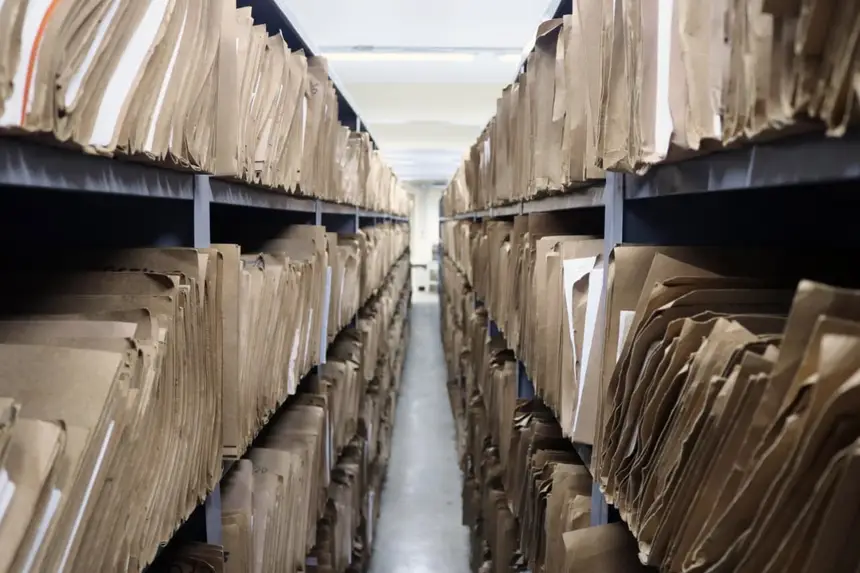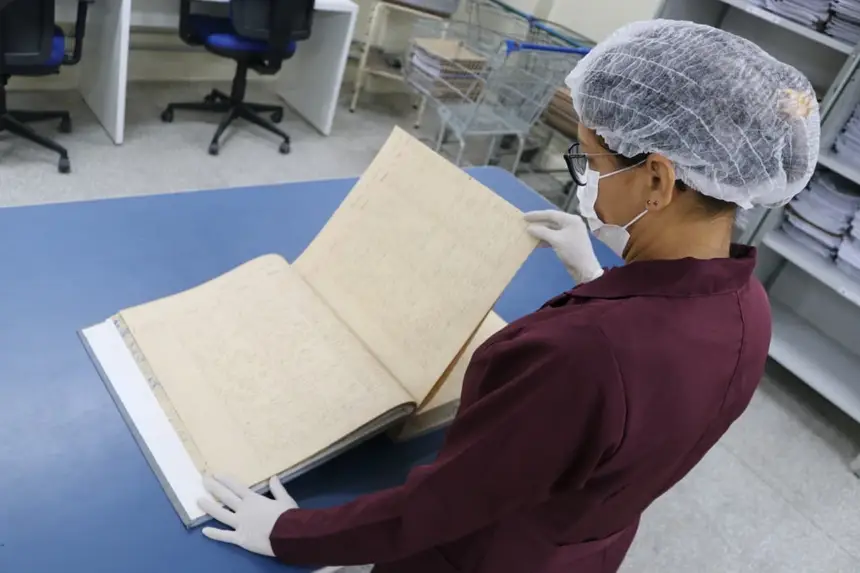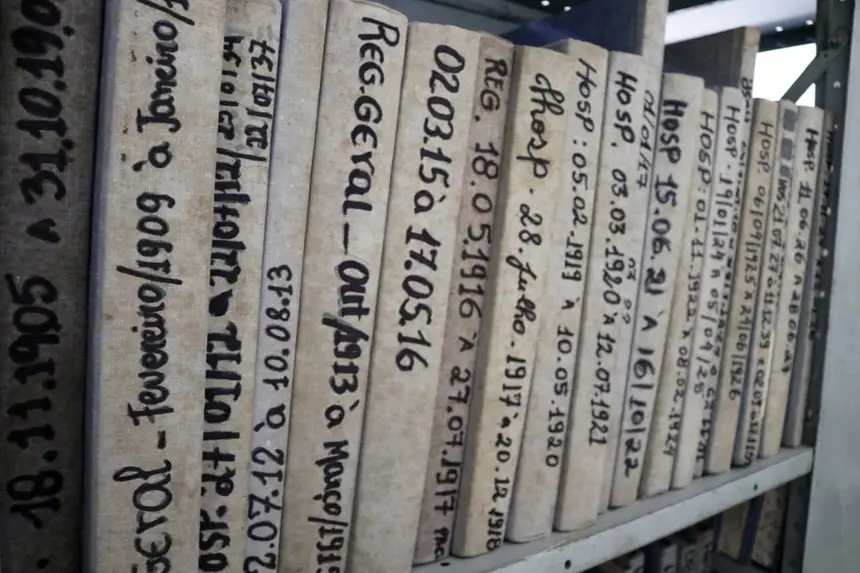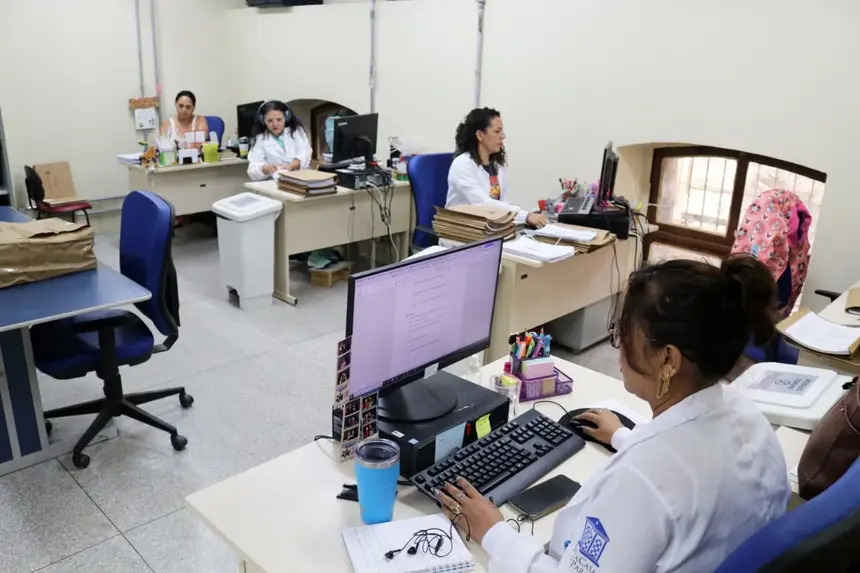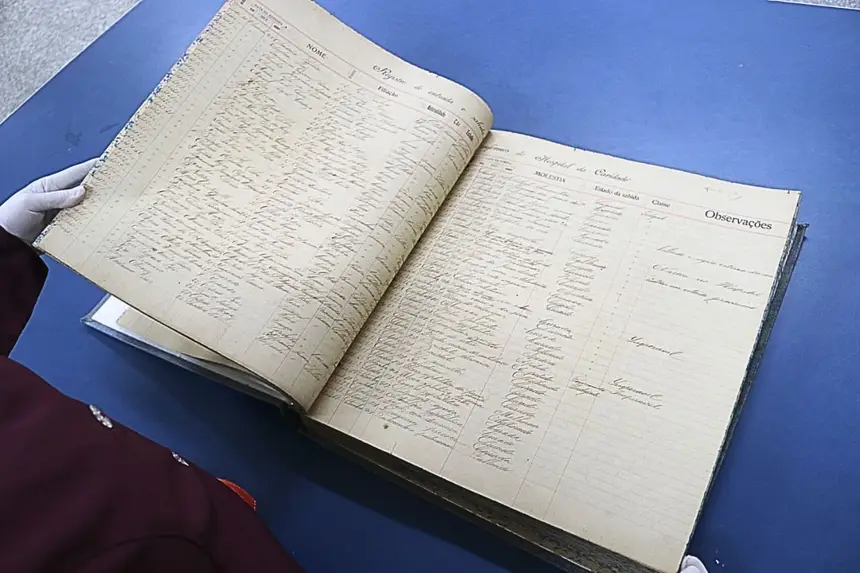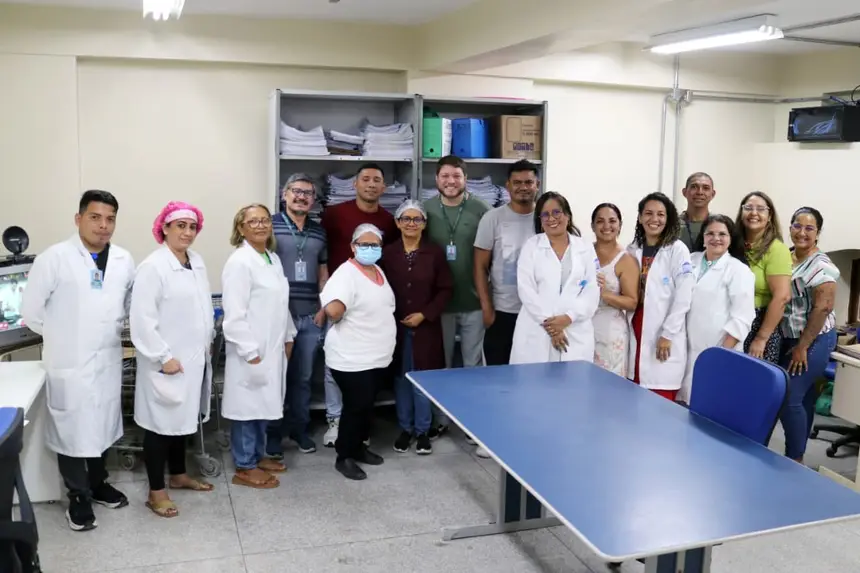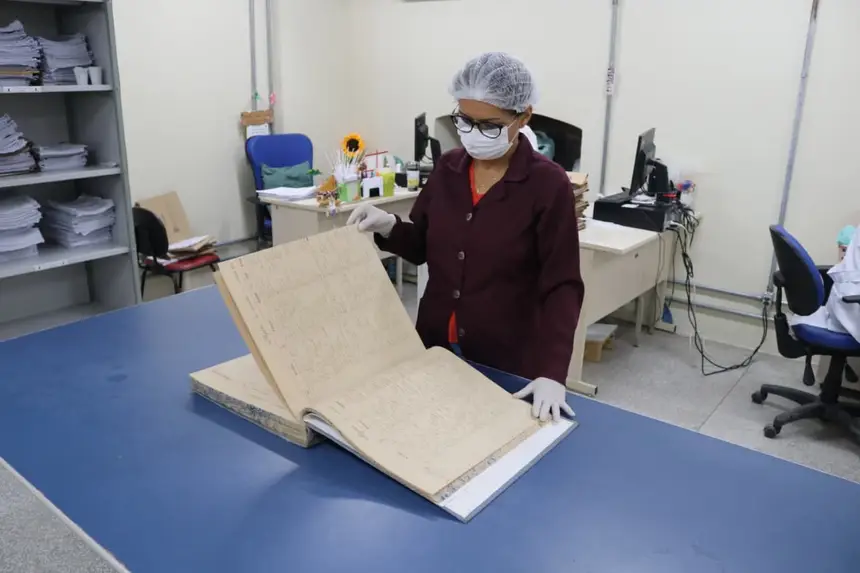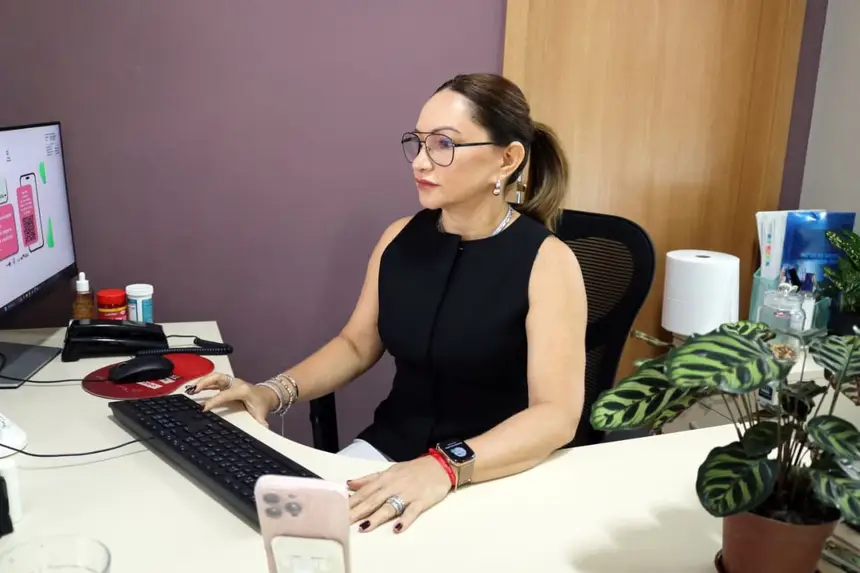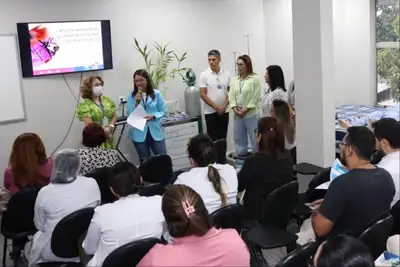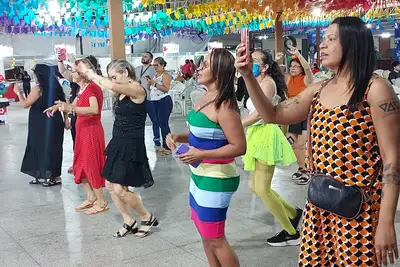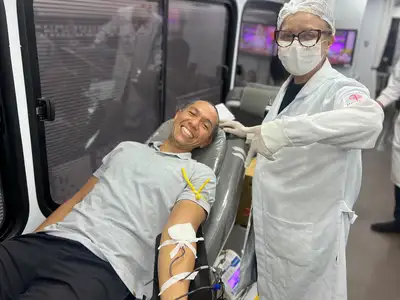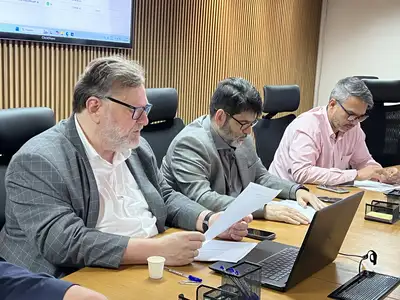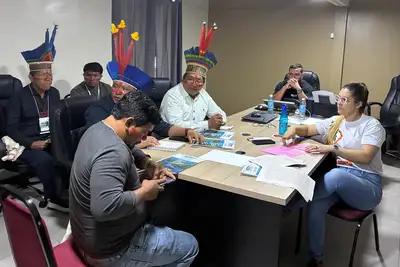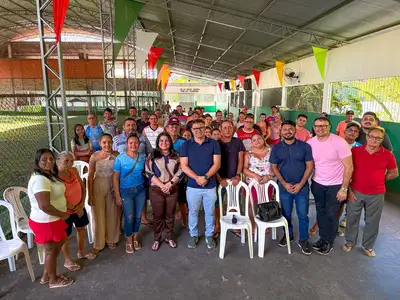Santa Casa Archive, which preserves the institution's history, receives structural works
With an investment of over R$ 200 thousand, made by the Government of Pará, the hospital's Archive safeguards records and other documents about users
The Santa Casa do Pará, the first hospital in Belém, is a health institution with 374 years of existence, which has the Medical Archive as a testament to this long journey. The Archive holds a collection of documents from the services provided for more than three centuries to the people of Pará. In its rooms, patient records are preserved ethically, within archival standards, with special attention to the confidentiality of information.
Safeguarding the stories of the hospital's users in the Archive preserves the historical and social role of patients who received care, assistance, or underwent procedures at the secular institution.
“I am a proud child of Santa Casa. I am recorded in the historical books of this maternity,” says Nelsinho Rodrigues, a Pará singer, born on May 18, 1967, in the institution's maternity ward. Like him, other important figures in the history of Pará were born in the hospital, including former governor Almir Gabriel, former Brazilian national football team player Sócrates, and one of the greatest chefs of Pará's cuisine, who brought visibility to Amazonian cuisine: Paulo Martins.
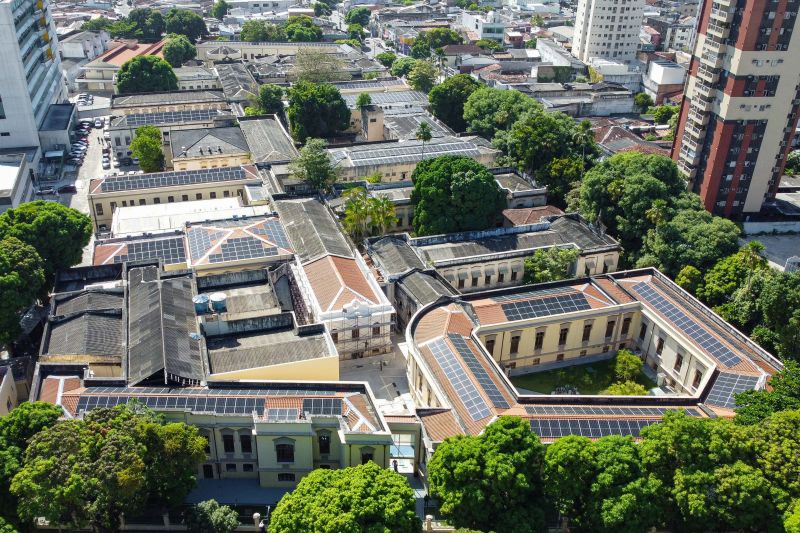
Virgínia Oliveira, a retired employee, reports that she worked in the archive area of Santa Casa. “Regarding the records of births of names that remained in history, I remember former governor Almir Gabriel, who was born here. When he was at one of the inaugurations at the hospital, we presented the book in which he was registered. At that moment, he was surprised and very happy with this document,” says the employee.
Nilson Chucre, coordinator of the Medical Archive (Came) since 2020, emphasizes that the history of Santa Casa is intertwined with the history of the people of Pará, due to the hospital's role as a primary reference in maternal and child health. “It is in the Medical Archive that the records of patients treated by the institution are kept, which includes a collection of medical records since the 1980s and patient admission record books dating back to the early 20th century (year 1903), proving the importance of this collection for the history of the Amazonian population,” highlights the coordinator.
“After more than 20 years without undergoing renovations, the Archive has been completely revitalized thanks to the commitment and sensitivity of the current management. The improvements made have elevated the quality of the environment and enhanced the conditions for the storage and preservation of records, contributing to a safer and more suitable environment for the staff to perform their activities. And the staff who have worked there for over two decades expressed great satisfaction with the improvements implemented,” emphasizes Nilson Chucre.
In recent months, the Archive underwent renovations that provide more quality to the space, which holds documents and records of services to users from various decades. According to Marcelo Frota, an engineer from the Santa Casa Foundation of Pará, the Archive has approximately 495 square meters of built area and received an investment of R$ 205,687.50 for works and equipment.
“The work included, among the most relevant services, a new electrical installation in the sector, the implementation of a new refrigeration system, painting and treatment of infiltrations, recovery of bathrooms, restructuring of rooms with new furniture, providing a more dignified environment for the staff who work there,” informs the engineer.
Past, present, and future - The historical collection has records dated from 1903 to the present day, stored and cataloged according to the protection standards established by the institution. In 2014, the sector was modernized and received an electronic medical record system. In 2021, the oldest documents began to be digitized, allowing for considerable paper savings and practicality in user service time.
Walda Valente, director of Planning, Budget, and Management of the Santa Casa Foundation, reinforces the importance of the space as a reference for preserving over three centuries of medical history in Pará. “It holds records that show the evolution of assistance, clinical practices, and the very society of Pará. Santa Casa values this legacy by investing in preservation, qualified access, and modernization, because we understand that memory is public heritage,” emphasizes the director.
“The modernization of the Archive profoundly strengthens the institution because it ensures that our collection remains alive, accessible, and useful for researchers, health professionals, and the entire population. Preserving our history is also preparing the future of the Santa Casa Foundation of Pará,” emphasizes Walda Valente.
Protection and services - Nilson Chucre details that the institution complies with the General Data Protection Law (LGPD). “Santa Casa has long been in compliance with the legislation, the current law as prescribed by the Federal Council of Medicine (CFM) and the National Archives Council (Conarc), in addition to the Access to Information Law (LAI),” he informs.
The Archive offers access to patient information (medical records and other documents). Access is guaranteed in the following cases:
* The patient themselves: By presenting a photo identification document;
* Legal representative: In cases of minor, incapacitated, or deceased patients. Parents, guardians, or legal representatives have the right to access the medical record;
* Family members: In specific cases, based on the order of hereditary vocation, such as spouse, children, parents, and siblings;
* Authorized third parties: Any person can request, provided they present a specific power of attorney from the patient authorizing the delivery of documents;
* Judicial authorities: By court order, such as judges, prosecutors, police officers, and public defenders;
* Health professionals: Professionals directly involved in treatment have access, respecting confidentiality;
* Data collection for scientific research: guaranteed based on evaluation by the Ethics Committee and the Research Coordination of FSCMPA, with the necessary legal backing.
Service: The Archive serves the external public from Monday to Friday, from 7 am to 12 pm. Internal service is from Monday to Friday, from 7 am to 4 pm.
Text: Márcio Bastos - Ascom/FSCMPA



